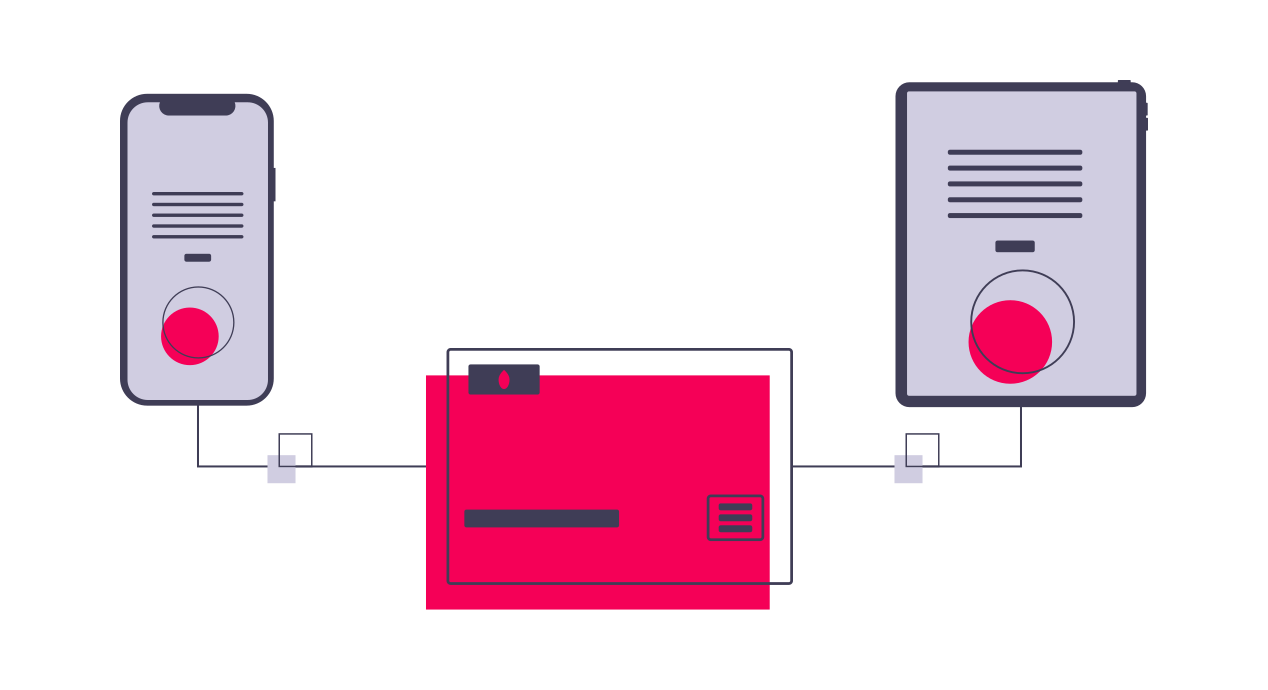Customer Relationship Management Software (CRM) is a business technology that handles all customers and leads in one place. It combines human activity with automation, data, and often machine learning to enhance customer experience.
Within the typical company, multiple teams of people interact with customers. They do so in various capacities–sales, marketing, customer care, resolutions, management, scheduling, etc. When these various groups work within different systems, it creates information silos. Customers experience segmented service and often misunderstandings. CRMs can solve this. When all customer communications are in one place, you can:
- Improve customer experience
- Streamline operations
- Eliminate redundancy
- Increase profitability
- Track productivity and other metrics across departments
CRM is a $42B industry and has nearly doubled over the last five years. The idea of a central customer relationship management system has existed for a while and has gone through many iterations. But the modern CRM as it exists today is a relatively new invention. It has only become possible more recently thanks to cloud technology. CRM aligns with today’s more complex customer-driven customer-brand experience.
Use Cases for Customer Relationship Management Software
CRM is customizable and adaptable to unique business needs. Business uses it to solve real-world problems like:
- Keeping product lines and services in sync with customer demand – It accomplishes this by tracking customer trends throughout the platform and providing insightful reports.
- Improving customer experience and perceptions – You give each customer the time and attention they need to feel valued by the brand. With CRM, every person who works with a customer can see that customer’s whole picture to provide the most accurate and helpful information.
- Improving the timing of customer communications through automation – This not only improves customer experience. It also reduces customer service inquiries, misunderstandings, and bad reviews. Positive online reviews are critical for modern business.
- Monitoring social media conversations for follow-up – You manage brand reputation and resolve customer complaints before they become a customer service call. Addressing customer concerns through social presents a more transparent and attentive face to other potential customers. And social customer service is less expensive than traditional customer service like call centers.
- Using native and integrated apps to enhance the CRM experience – It creates a better experience for employees who expect the technology they use to work. It ensures the one CRM can be what each team needs to do their job efficiently.
Typical Features and Functions of CRM Software
The following are some of the core features of Customer Relationship Management Software. (ITBits also offers a comprehensive and customizable CRM business capabilities model.)
Workflow Automation
Automating repetitive and monotonous tasks not only improves morale and job satisfaction. It can reduce error rates and significantly increase productivity.
Customization
Most modern CRMs can integrate with certain third-party software to build out the perfect system. They will also have their own native apps.
Reporting
You’re storing and managing data all in one place. Now, you can run better reports at each level to get a better picture across an organization.
Customer Service Management
Get a 360-view of each customer and a more comprehensive look at prospective customers. Track all communications, which reps can then view in one location to accurately answer questions. Personalize communication using behavioral data. Identify the most common questions to build out self-service resources available online.
Track Employee Performance
Since most of an employee’s work takes place in the CRM, you get a relatively comprehensive picture of how they use their time. You can use team and department-level performance data to identify areas for workflow improvement.
Social Media Tools
Track social media mentions and notify representatives when they need to step in. Listen to your customers online to seek out opportunities, make improvements, and track the competition. Customize your social media strategy to maximize brand engagement. Manage and automate many day-to-day social media tasks to free up social media professionals to deal with the exceptions.
Lead Management
Gain insights into which activities generate the most leads and optimize through data. Nurture leads through a combination of automation, relevant content, and human interaction. Rekindle seemingly dead lead with a perfectly timed offer. Have the potential to automatically redistribute leads that have gone cold while a specific sales rep managed them.
Real-time Data
With a CRM, no one has to engage in time-consuming activities like compiling data from multiple systems into one report. Because CRM is all in one place, that data is available. And the CRM can compile and display it according to your needs.
Useful Analytics
It’s one thing to get data in real-time. But it must also be in a usable form. Modern CRM technology can provide business intelligence drawn from data. This may include machine learning, so the more data the CRM collects, the “smarter” its insights become.
Sales Forecasting
Plan, prepare and adapt more quickly to anticipated changes in buying behavior.
Event-triggered Email
Keep customers updated on their orders. Engage them at the right times to increase sales, positive reviews, referrals, and more.
Email Performance Tracking
Email is still a preferred communication method among most customers. See how customers receive your emails and continually improve.
Built-in Templates
Create cohesive brand messaging through template libraries for every type of communication. Update them automatically and all in one place.
Multi-channel Followup Tracking/planning
Track all followup. Even if someone is on vacation, leaves the company, or becomes bogged down with a major account, teams can collectively manage follow-up. And they can do so across channels to maintain and build a stronger customer relationship.
Cloud-Based & Scalable
Modern CRMs are massive, so they’re not likely manageable in-house. Instead, they’re usually on the cloud. Employees can securely access regardless of where they work, as long as they have a secure Internet. And CRM companies focus on constantly improving features, so your CRM of choice grows with you as technology and trends change.
What Customer Relationship Management Software does your company use?


